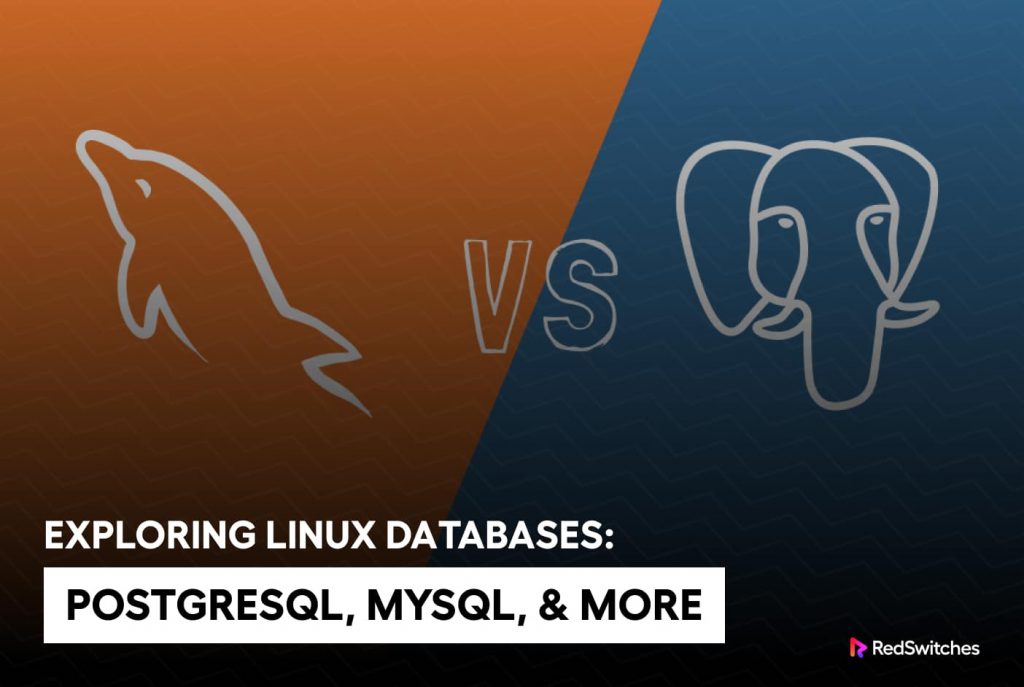Database Management in Web Hosting: MySQL, PostgreSQL, and Beyond

In the intricate ecosystem of web hosting, managing databases efficiently is paramount. Whether you’re a seasoned webmaster or a budding entrepreneur, understanding the nuances of database management is crucial for ensuring smooth website operations. Among the myriad of database management systems available, MySQL and PostgreSQL stand out as stalwarts, but there are also other alternatives worth exploring. Let’s delve into the realm of management in web hosting, exploring MySQL, PostgreSQL, and beyond.
Understanding MySQL: MySQL has long been a cornerstone in web hosting, renowned for its reliability, performance, and scalability. As an open-source relational database management system, MySQL is widely favored for its ease of use and compatibility with various web applications. Whether you’re running a small blog or a sprawling e-commerce platform, MySQL provides the robustness needed to handle diverse workloads effectively.
Key Features of MySQL:
- Speed and Performance: MySQL boasts impressive speed and performance capabilities, making it ideal for high-traffic websites.
- Scalability: With support for clustering and replication, MySQL scales seamlessly to accommodate growing demands.
- Security: MySQL offers robust security features, including encryption and access controls, to safeguard sensitive data.
- Flexibility: MySQL supports multiple storage engines, allowing users to optimize performance based on specific requirements.
- Community Support: With a vast community of developers and enthusiasts, MySQL ensures timely support and continuous improvement through collaborative efforts.
Exploring PostgreSQL: While MySQL reigns supreme in the web hosting arena, PostgreSQL emerges as a formidable contender, particularly for complex applications requiring advanced features and extensibility. As an object-relational database management system, PostgreSQL excels in handling diverse data types and complex queries with finesse.
Key Features of PostgreSQL:
- Extensibility: PostgreSQL offers a rich ecosystem of extensions, enabling users to customize and extend functionality according to their unique needs.
- ACID Compliance: PostgreSQL ensures data integrity and reliability through strict adherence to ACID (Atomicity, Consistency, Isolation, Durability) principles.
- Advanced Data Types: From JSONB to geometric data types, PostgreSQL supports a wide array of data types, making it suitable for diverse use cases.
- Full Text Search: With robust full-text search capabilities, PostgreSQL simplifies the implementation of complex search functionalities within applications.
- Support for Geospatial Data: PostgreSQL’s support for geospatial data makes it an excellent choice for location-based services and geographic information systems (GIS).
Beyond MySQL and PostgreSQL: While MySQL and PostgreSQL dominate the landscape of web hosting databases, there are other noteworthy contenders worth considering, depending on specific requirements and preferences. Some alternative databases include:
- MariaDB: A fork of MySQL, MariaDB offers enhanced performance, scalability, and features while retaining compatibility with MySQL.
- MongoDB: As a NoSQL database, MongoDB excels in handling unstructured and semi-structured data, making it ideal for modern web applications with flexible schemas.
- SQLite: Known for its lightweight footprint and simplicity, SQLite is often used in embedded systems and applications requiring local storage.
Conclusion: In the dynamic realm of web hosting, effective database management is indispensable for ensuring optimal performance, scalability, and security of websites and applications. While MySQL and PostgreSQL remain stalwarts in the field, exploring alternative databases such as MariaDB, MongoDB, and SQLite can offer insights into diverse approaches to data management. By understanding the strengths and limitations of various database management systems, webmasters can make informed decisions to meet the evolving needs of their projects.
